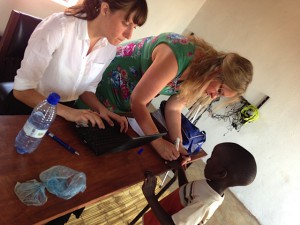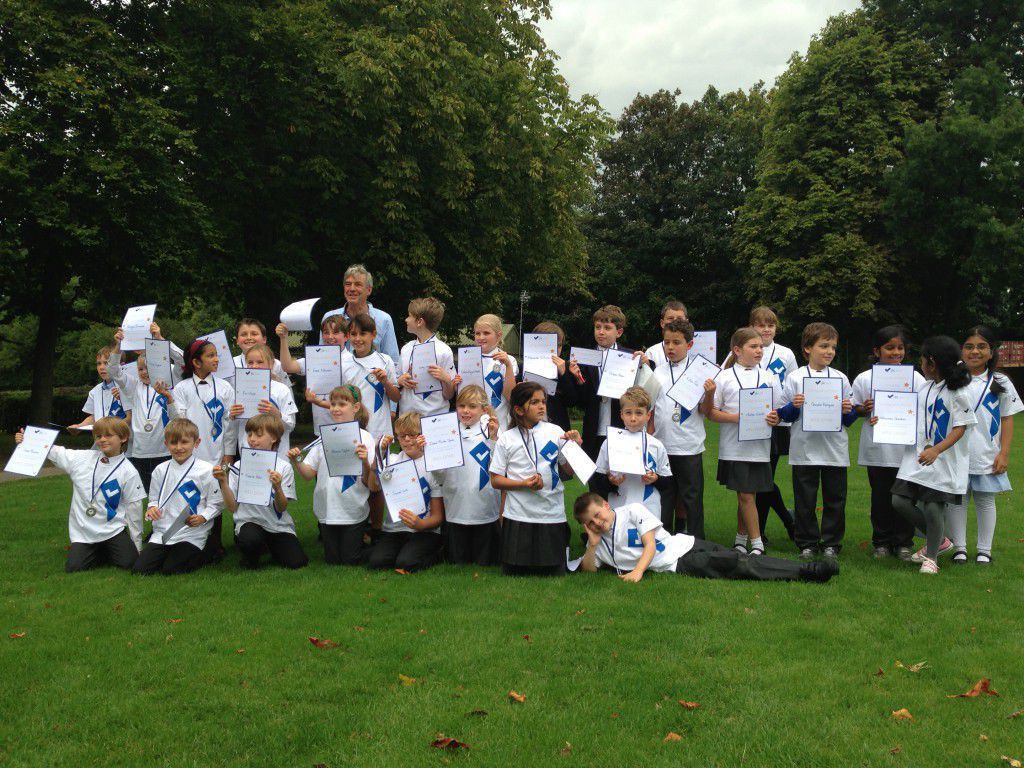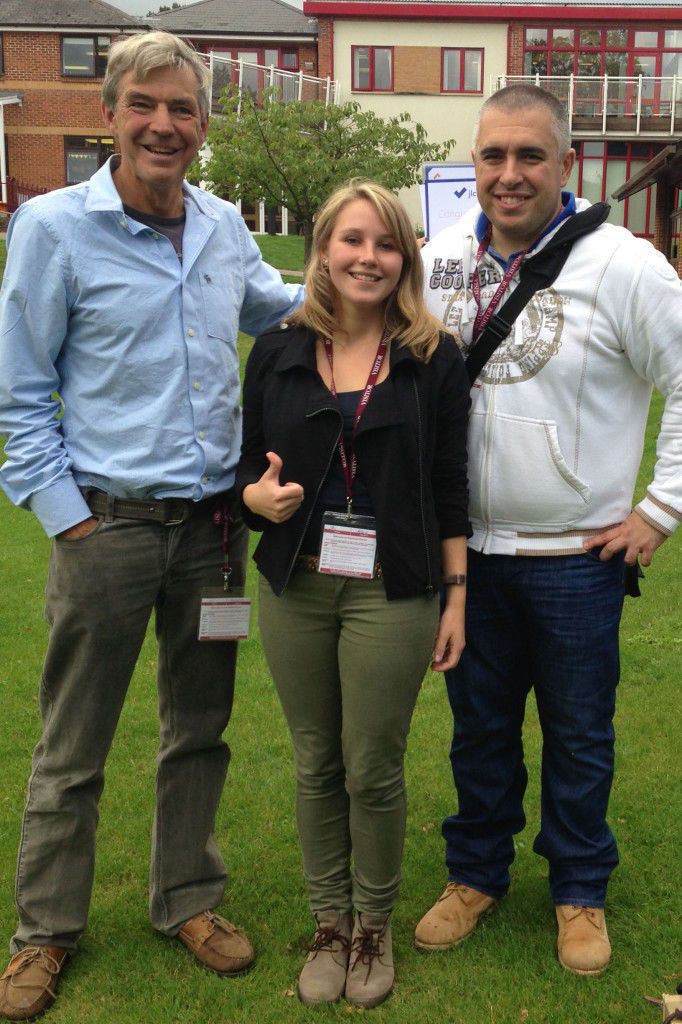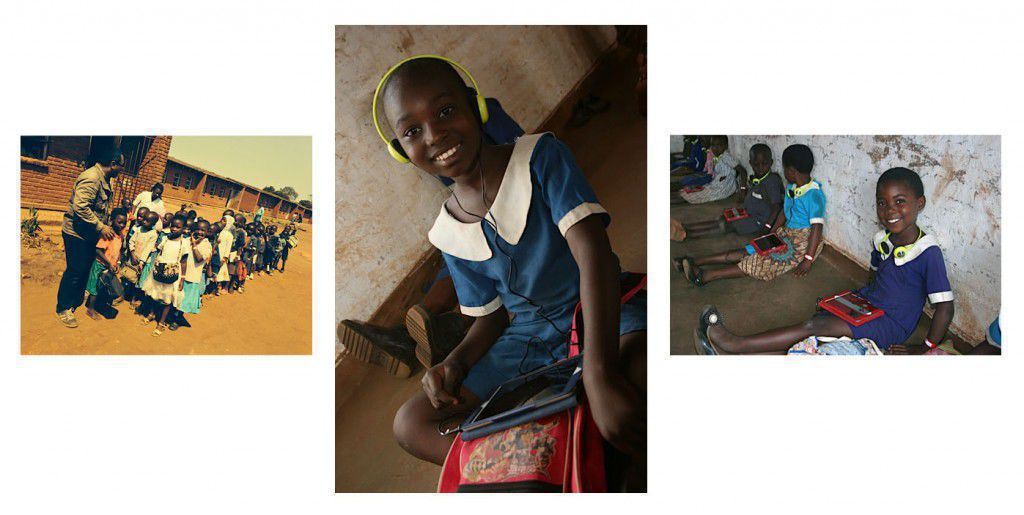Where it’s at – how to say @ in different languages
The other day a colleague was telling someone his email address in French. He was halfway through and ran across a problem. He didn’t know the word for “the little ‘a’ in the circle”. In English we just say ‘at’, but that translates as ‘à’ in French and that sounds remarkably like the letter ‘a’. See the problem?
What he should have said was ‘arobase’, but different cultures call it completely different things – from official names to animal-based nicknames. Below we’ve found some of the most creative words for “the little ‘a’ in the circle”:
Animals (With Curly Bits)
The Germans, Romanians and South Africans (among others) all describe it as a ‘monkey tail’.
Thai and Hungarian people call it a ‘worm’ and the Italians refer to it as a ‘snail’.
The Swedish and Danish describe the shape as an ‘elephant’s trunk’ and the Greeks think it looks more like a ‘duckling’.
Curly Food
In Catalan, the “little ‘a’ in the circle” is named after a swirly pastry called an ‘ensaïmada’.
In Hebrew it’s named after a strudel.
In Slovak, it’s named after a rolled pickled herring!
Other Uses
The “little a” isn’t only used in email addresses. In Spanish, the symbol is sometimes used to represent masculine and feminine gender in the same word, for example ‘amig@s’ means male and female friends, although this is frowned upon by the Real Academia Española, so we don’t recommend it!
And in Portugal and Brazil, the symbol is used in text messages to represent ‘french kiss’ – so be careful how you use it if you’re travelling in those countries…
What do you call the @ symbol?
A brief guide to English Office Jargon
Today’s post was contributed by Mark James, Copywriter at Crunch Accounting.
It’s been just over a year since I traded academia for the office, my three years spent studying English coming to an end and my career as a copywriter now starting to take shape.
 In that past year I’ve had to make an array of adjustments; getting used to waking when the sun comes up rather than when it goes down and trading clubbing plans for pension plans amongst the changes I’ve felt. Getting to grips with corporate lingo is something I’ve faced too – an English dialect of its own that can be just as baffling as Scouse or Geordie (perhaps even more so).
In that past year I’ve had to make an array of adjustments; getting used to waking when the sun comes up rather than when it goes down and trading clubbing plans for pension plans amongst the changes I’ve felt. Getting to grips with corporate lingo is something I’ve faced too – an English dialect of its own that can be just as baffling as Scouse or Geordie (perhaps even more so).
Concerned about its influence, the Plain English Campaign has tried to contain its spread, going so far as to say that it’s damaging the economy. That’s probably a tad extreme but there’s no doubt that office jargon’s causing contention, certain phrases creeping outside of the workplace and into our everyday language.
As such, if you’re planning on spending some time on these shores it might be a good idea to learn some of the basics. Here’s an overview of some of the most popular…
‘Touch base’
Heard in offices across the country, confusingly this doesn’t refer to playing baseball, it simply means to establish contact with someone, perhaps through telephone, email, or a meeting in person.
Example usage – ‘David, I think you ought to touch base with Boris. His political aspirations are getting way out of control.’
‘Going forward’
You’ll hear this in meetings a lot. Essentially, it translates as ‘in the future’. Why ‘in the future’ isn’t deemed good enough again confuses me, but hey ho, people seem to like using it.
Example usage – ‘I’ve got my eye on a Bugatti Veyron, so going forward I propose we cut costs and outsource to India.’
‘KPI’
An acronym which stands for ‘Key Performance Indicator’, you’ll often hear this in appraisals and the like. Basically, the term encompasses anything that management can use to manage the effectiveness of a strategy or, you as an employee.
Example usage – ‘For someone brought in to increase productivity by 200%, Tarquin’s KPIs are woefully low. Clear his desk whilst he’s away at lunch.’
‘Thinking outside the box’
This phrase must be a nightmare for a non-native speaker, as there’s no boxes involved, it simply means to think unconventionally.
Example usage – ‘To prosper in the global race, we’ll need to increasingly think outside the box.’
‘ROI’
Another acronym that I thought needed explaining, this stands for ‘Return On Investment’. Put simply, it refers to how much cash an investment in something like property or a marketing campaign reaps in the long term.
Example usage – ‘We invested £200 billion in subprime mortgages but our ROI appears to be less than 300 billionths of that. In other words, we need a government bailout.’
In my first year of office work, these five terms are the ones that I’ve come across the most. There’s many more though, as this article from the BBC reflects, and if an episode of The Apprentice is anything to go by, there’s plenty more where that came from. I’d start developing an office jargon app if I were you, EuroTalk…
Mark James is a Copywriter for Crunch Accounting. If you’d like to touch base with him going forward, find him on Twitter at @MarkJames891.
And if you’re interested in learning some business English, you might want to try Talk Business, which is available as a download or a CD-ROM. It may not include the jargon above, but it’s a good place to start!
Image credit – arenagroove
Getting to know you: ‘Hallo’ from Lorena
My name is Lorena and I am from Germany. I just finished school and now I’ve started a placement at EuroTalk for five months. This is my third week in the company and it is very exciting. I am working on a project to help EuroTalk promote their maths apps in Germany. I’m having fun thinking about this task and I have a lot of ideas!
On my third day at EuroTalk, Wednesday 18th September, I went to the Junior Language Challenge at the Cranmore School in Surrey. It was the semi-final for London (South). At one o’clock we arrived at the school and prepared the iPads so that the children could use the Greek app.
About thirty thrilled children were ready to start! 🙂
… And after the welcome, it was finally happening.
The children were split up in two groups of thirteen and each group played the games. The children with the best score came into the final. The teachers and some parents could follow which position the children were in, because there was a whiteboard with the current score. For the children it was a very exciting situation and the teacher and parents were pretty curious.
After the challenge I saw only smiling kids! They were so happy and very proud of the certificates they got from EuroTalk.
And for me was it an interesting day and I got some impression of how EuroTalk promotes languages for children.
Lorena
A step closer to one billion children
If you’ve been on our Facebook or Twitter page recently, you may have noticed some of our photos from our recent trip to Malawi. Although some members of our office are convinced we went over there to buy beans for our new coffee machine, we were actually there to run an evaluation on the success of our maths apps in schools there. Myself, Jamie, Andrew and Nicola Pitchford from Nottingham University spent 10 days in Lilongwe, Malawi’s capital, testing around 400 Malawian kids at Biwi primary school on basic maths and motor skills, as well as asking them questions about their aspirations and how they feel about school life in general.
 If you have never tried to register the names and details of hundreds of small children, and chase them all down to put the right coloured and named wristbands on each one, you might struggle to imagine the level of chaos that we experienced, with several kids coming back to try and get their photos taken twice, some losing or destroying their wristbands after just one day, and our complete inability to spell Malawian names!
If you have never tried to register the names and details of hundreds of small children, and chase them all down to put the right coloured and named wristbands on each one, you might struggle to imagine the level of chaos that we experienced, with several kids coming back to try and get their photos taken twice, some losing or destroying their wristbands after just one day, and our complete inability to spell Malawian names!
However, somehow we managed this massive task, and got down to business putting the children into groups (a red group, who will use our maths apps for 8 weeks, a blue group who will use other fun, but non-maths, apps, and a pink group who will carry on with teaching as usual). After this, we began to assess the children, running our specially-designed evaluation app on groups of around 50 children at a time.
Thanks to Nicola’s amazing organisational skills and hard work from everyone, we managed to assess all the children who are part of the study in just three days, albeit with our stress levels a little higher at the end of several hours of using our rather basic knowledge of Chichewa to explain to kids how to use their shiny new ipads (or ‘gadgets’ as they call them!). The red group will now have 8 weeks to use the Masamu (maths) apps for a few hours each week, and we will be back to assess their progress in November!
We all had an amazing time in this beautiful country, and it was fantastic to see the level of interest that there is in our project. I was particularly happy to see how far some of the children got with the assessment tasks, and how hard some of them concentrated on getting the right answers, and trying out a range of new tasks that they would never normally be asked to do. There is clearly a lot of natural maths talent there, so we’re extremely excited to see the progress that they make with the extra teaching and support we are giving them during the study.
Make sure you check out our Flickr account for loads of pictures of the goings-on at Biwi school!
Alex







